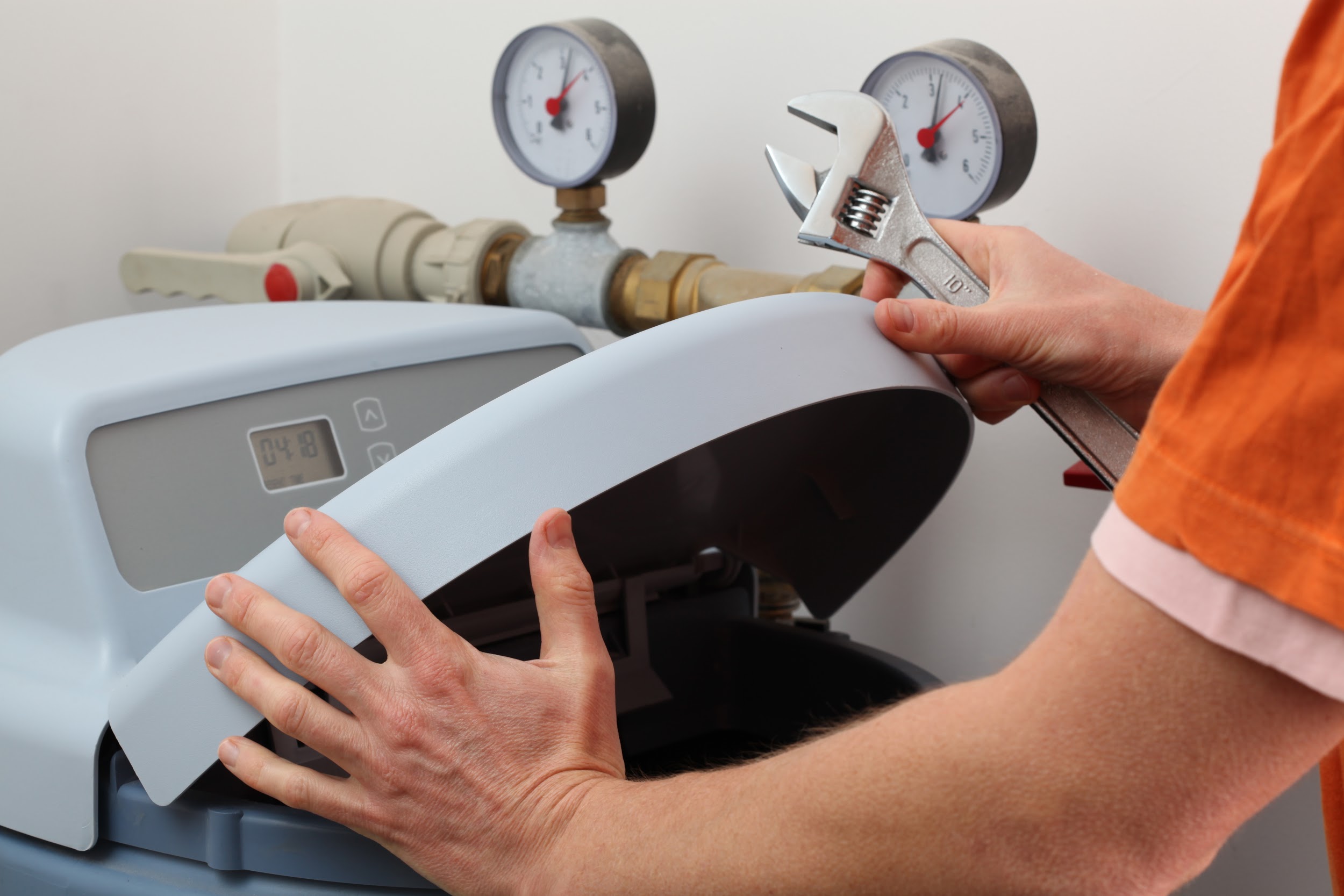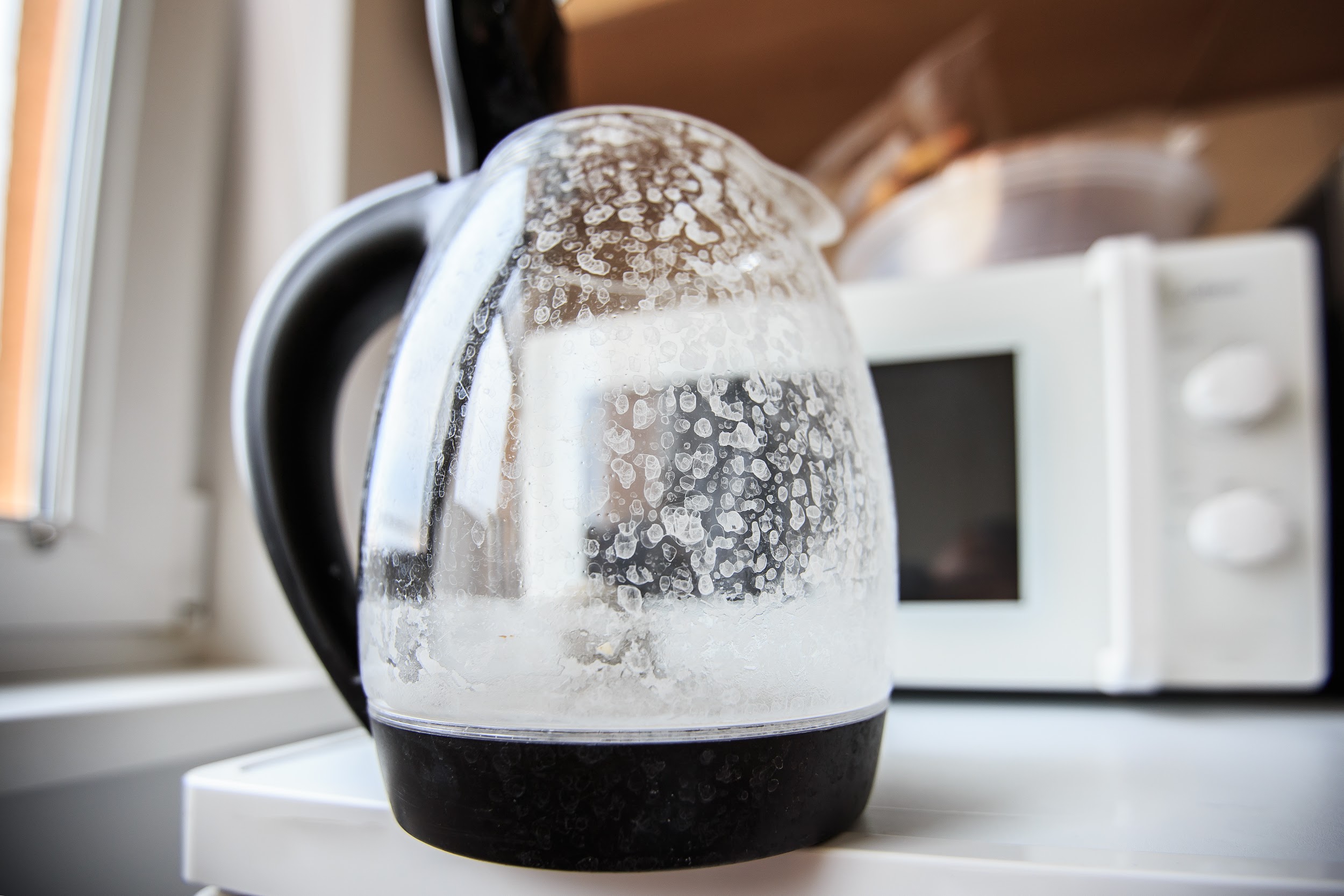How Does a Water Softener Work?
A water softener removes dissolved minerals that make water “hard.” It replaces these minerals with sodium, which makes water “soft.”
Calcium and magnesium are two of the most common and troublesome hard water minerals. They aren’t harmful to consume. But they can wreak havoc on your appliances, plumbing fixtures, and even your skin and hair. If you find crusty deposits in your bathtub or water spots on your dishes or coffee pot, odds are you’re one of the 85% of households in the U.S. with hard water, according to the U.S. Geological Survey.
Components of a Water Softener System

Water softeners remove problem-causing minerals through a process called ion exchange. The typical salt-based water softening system contains three main components: a softener tank, a brine tank, and a control valve.
Water enters the softener tank and moves through resin beads that are charged with sodium ions. The positively charged minerals in the water cling to the negatively charged sodium ions in the resin beads, like a magnet. The minerals are swapped out with small amounts of sodium, making the water soft.
The brine tank regenerates the system. It contains a concentrated salt solution, which is flushed through the softener tank. This serves two purposes. First, it washes away the hard-mineral deposits from the resin beads. Second, it recharges the resin beads with sodium ions. Regeneration cycles typically happen at night and allow the system to continue providing soft water.
The control valve gauges how much water passes through the softener tank. It automatically triggers regeneration cycles, as needed, to keep the system functioning optimally. The built-in computer on the valve can be programmed with information about your household—things like the size of your home and the hardness level of your water.
How do I know if I have hard water?

Hard water causes the familiar spots on dishes and the scummy film that coats sinks, tubs, and shower curtains. Over time, it causes scale deposits in plumbing lines, which can reduce your home’s water pressure and damage your plumbing system.
Hard water also shortens the lifespan of appliances, like dishwashers and coffee makers. If you’ve ever noticed a popping sound from your hot water heater, it’s likely due to scale build-up on the unit’s heating element.
Bathing with hard water causes itchy skin and dry hair and makes it hard to get a good lather.
All of these are signs you have hard water. To know for sure, consider hiring a professional plumber to perform a water quality inspection. In addition to testing hardness, a professional inspection can reveal whether your water contains harmful substances like lead, nitrates, and radon.
What are the benefits of soft water?
We’ve covered some of the problems associated with hard water, from reduced water pressure to scale build-up. Let’s look at the benefits of installing a water softener.
Increased longevity of appliances
Scale build-up from hard water is incredibly damaging to appliances. Investing in a water softener can extend the life of your appliances by many months or years.
Easier cleaning
Scale build-up and hard water stains make cleaning more difficult and time consuming. A water softener will reduce or even eliminate scale deposits.
Better performance of soaps and detergents
Soft water makes soaps and detergents work more efficiently. In fact, sudsy products should be used more judiciously with a water softener, as a little goes a long way. This also means you’ll save money on cleaning products.
Softer skin and hair
Hard water dries out skin, hair, and nails. You’ll likely notice a difference immediately after installing a water softener system.
Reliability and low maintenance
Modern water softeners are efficient and easy to maintain. Other than adding salt pellets to the brine tank periodically (and the recommended annual service check), these self-contained systems tend to be exceptionally reliable, requiring little work for homeowners.
Ready to Install a Water Softener System?
A water softener should be installed by a licensed plumber or contractor, especially if your home is on well water. The experts at Christianson Air Conditioning and Plumbing will recommend the optimal system for your home, based on the hardness level of your water and your needs. Our full-service plumbing and air conditioning company has been faithfully serving customers in the Greater Austin-San Antonio region for 70 years. Learn more about our company and contact us to schedule an appointment.



Sorry, comments for this entry are closed at this time.